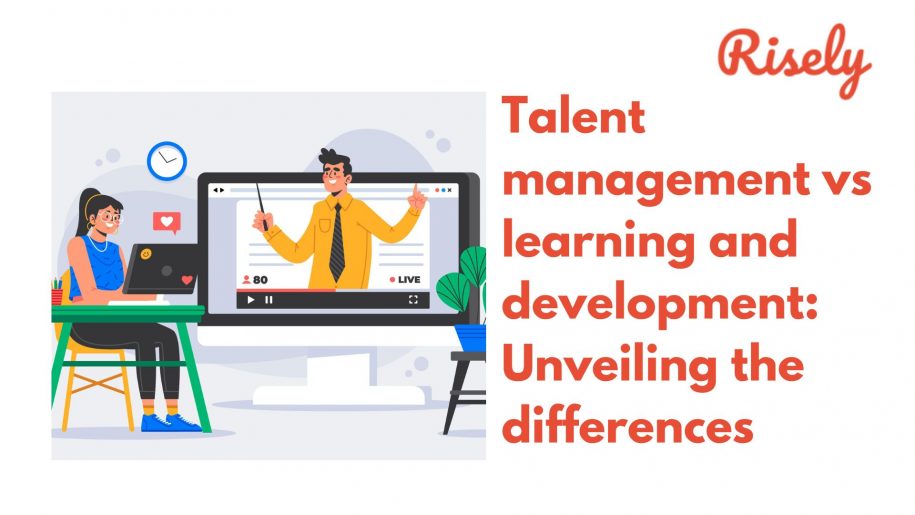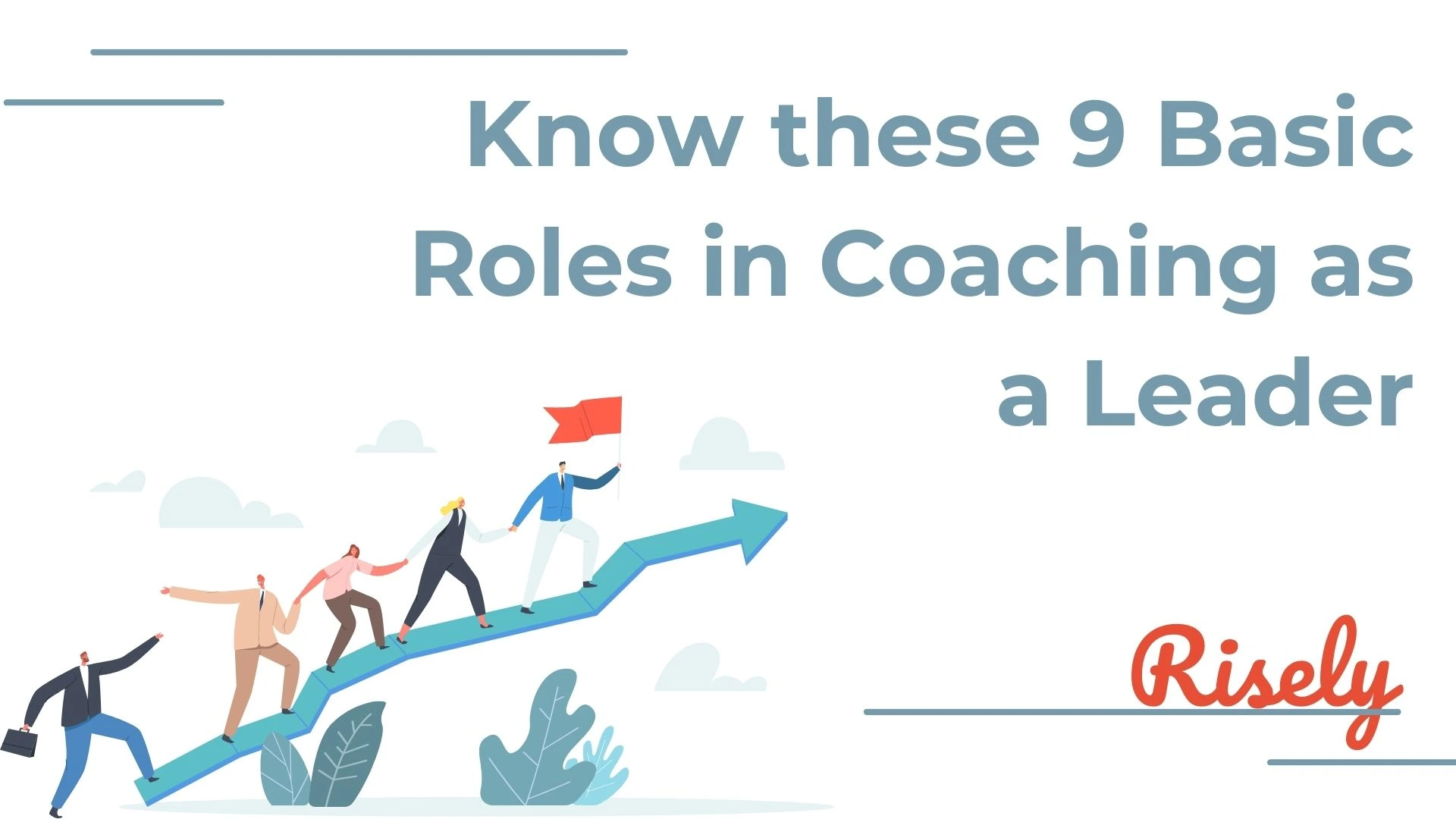Talent management vs learning and development: Unveiling the differences
Today every manager recognizes the critical importance of nurturing their human capital to drive growth and success. Two essential functions that play a pivotal role in this process are talent management vs learning and development. While often used interchangeably, these two areas have distinct focuses and objectives. Understanding the similarities, differences, and potential synergy between talent management vs learning and development is essential for teams seeking to create a dynamic and agile workforce. This blog will explore the concept of talent management vs learning and development, shedding light on their definitions, key characteristics, and how they intersect. We will delve into the unique aspects of each function and highlight how their alignment can create a powerful synergy, driving performance and fostering employee growth.Definition of talent management
Talent management refers to the strategic approach of attracting, identifying, developing, and retaining talented individuals within a team to meet its current and future needs. It involves creating a comprehensive framework and processes to effectively manage the entire lifecycle of talent, from recruitment to retirement or promotion. Talent management goes beyond traditional HR practices, nurturing and leveraging employees’ skills, knowledge, and potential to drive team success. It recognizes that talented individuals are valuable assets and aims to align their capabilities with the team’s goals and objectives. Key elements of talent management include:- Talent acquisition
- Talent development
- Performance management
- Employee engagement and retention
- Talent analytics
Other Interesting Reads
Definition of learning and development
Learning and development (L&D) refers to the systematic process of acquiring knowledge, skills, competencies, and behaviors that enable individuals to enhance their performance, grow professionally, and meet the changing demands of their roles within a team. It encompasses strategies, programs, and initiatives to foster continuous learning, skill development, and personal growth. L&D recognizes that employees are the most valuable assets of a team and that investing in their learning and development contributes to their job satisfaction, engagement, and overall performance. It aims to create a learning culture that supports and empowers individuals to acquire new knowledge, develop essential skills, and adapt to evolving work environments. Key elements of learning and development include:- Training programs
- Skill enhancement
- Mentoring and coaching
- Career development
- Performance support
Difference between talent management vs learning and development
Some key differences between talent management vs learning and development are: Talent Management and Learning and Development are distinct yet interconnected concepts within human resource management. While they both focus on maximizing employee potential and driving success, there are key differences between the two: Focus and scope- Talent management is a strategic approach encompassing all aspects of a team’s attracting, identifying, developing, and retaining high-potential individuals.
- Learning and development is a specific area within talent management that focuses on enhancing employee knowledge, skills, and competencies through targeted learning initiatives.
- The primary objective of Talent management is to ensure that the team has the right talent in the right positions at the right time. It involves aligning talent strategies with the overall team strategy, identifying critical roles, and developing talent pipelines to meet present and future needs.
- The primary objective of learning and development is to foster continuous understanding and growth among employees. It aims to enhance individual performance, improve job-related skills, and enable employees to adapt to changing job requirements and needs.
- Talent management takes a long-term perspective, focusing on the strategic development and retention of talent over an extended period. It involves creating a talent pool for future needs.
- Learning and development often have a shorter time horizon, focusing on immediate or near-term learning needs. It addresses specific skill gaps, knowledge acquisition, and performance improvement requirements.
- Talent Management aligns closely with the team’s strategic objectives and long-term goals. It ensures that talent strategies support business outcomes, including increased productivity, innovation, and competitive advantage.
- Learning and Development initiatives are designed to align with both team goals and individual employee development needs. They focus on building skills and competencies, contributing to employee performance, and supporting the team’s strategic direction.
- Talent management encompasses the entire workforce and targets individuals with high potential or critical skills for development and retention.
- Learning and development initiatives target all employees across different team levels and roles. It aims to provide learning opportunities.
The similarities between talent management vs learning and development
While talent management vs learning and development are distinct concepts, the two have a significant similarity. This overlap occurs because both functions aim to maximize employee potential and drive success. Some areas of similarity between talent management vs learning and development:- Performance management: Talent management vs learning and development contribute to performance management processes. Talent Management identifies performance gaps and developmental needs through performance evaluations and feedback. Learning and development then design and delivers training programs or interventions to address these gaps and enhance performance. Managers can improve employee performance and productivity by aligning performance expectations with learning initiatives.
- Succession Planning: Talent management and learning and development collaborate closely in succession planning efforts. Talent management identifies key positions and individuals who have the potential to fill those positions in the future. Learning and development than design development programs to prepare these individuals for future leadership roles. By aligning succession planning with targeted learning initiatives, managers ensure a pipeline of qualified individuals ready to take on higher-level responsibilities.
- Career development: Talent management and learning and development play a role in supporting employee career development. Talent management focuses on creating career paths, providing growth opportunities, and offering mentorship or coaching to employees. Learning and development offer training programs, workshops, and other opportunities that enable employees to acquire the skills necessary for career advancement.
- Organizational alignment: Talent management and learning and development align their efforts with the organization’s strategic objectives. Talent Management ensures that talent strategies support the achievement of organizational goals. Learning and development design learning initiatives that are aligned with the organization’s strategic direction and skill requirements.
Conclusion
Talent management vs learning and development are two critical pillars of team success. Although they have distinct objectives, there is significant overlap and potential for collaboration between these functions. Throughout this blog, we have explored the characteristics of talent management vs learning and development, highlighting their unique contributions to a team’s overall growth and effectiveness. We have also emphasized aligning these functions to create a holistic approach to talent development. In conclusion, talent management vs learning and development are not isolated silos but interconnected components of a comprehensive talent strategy. Managers that recognize the importance of integrating these functions and fostering collaboration will be better equipped to attract, develop, and retain top talent, creating a workforce that is adaptable, skilled, and aligned with the team’s strategic goals.Ace performance reviews with strong feedback skills.
Master the art of constructive feedback by reviewing your skills with a free assessment now.
Frequently asked questions
Is learning and development same as talent development?
Learning and development (L&D) and talent development are closely related but have distinct differences:
1. Learning and development focus on acquiring knowledge, skills, and competencies to enhance individual and team performance.
2. Talent development: Talent development refers to a strategic and systematic approach to identifying and nurturing high-potential employees for future leadership roles within a team.
1. Learning and development focus on acquiring knowledge, skills, and competencies to enhance individual and team performance.
2. Talent development: Talent development refers to a strategic and systematic approach to identifying and nurturing high-potential employees for future leadership roles within a team.
What is the role of L&D in talent management?
The role of L&D in talent management is to support and facilitate the development of employees’ skills and competencies to fulfill the team’s talent needs.
Is talent management same as career development?
While talent management and career development are interconnected, talent management is a broader organizational approach encompassing multiple aspects of managing talent, including career development, to ensure the right people are in the right roles at the right time to drive organizational success.
Other Related Blogs
Know these 9 Basic Roles in Coaching as a Leader
In this blog, we will learn about the 9 essential roles in coaching that every L&D Leader should know to help team managers mentor, motivate and guide their team towards…
How Evidence-Based Coaching and Its Models Empower Leaders?
In this blog, we dive deep into what evidence-based coaching is, its core models and their implementation in an organization. … Read More
5 Unique Benefits Of Online Leadership Coaching
5 Unique Benefits Of Online Leadership Coaching Remember the days of leadership development being confined to a stuffy conference room filled with flipcharts and generic advice? Yeah, those days are…
5 Secrets To Ace Project Manager Training
5 Secrets To Ace Project Manager Training You’ve poured your heart and soul into building a dream team. You’ve recruited talented individuals with diverse skill sets, and you’re confident they…


